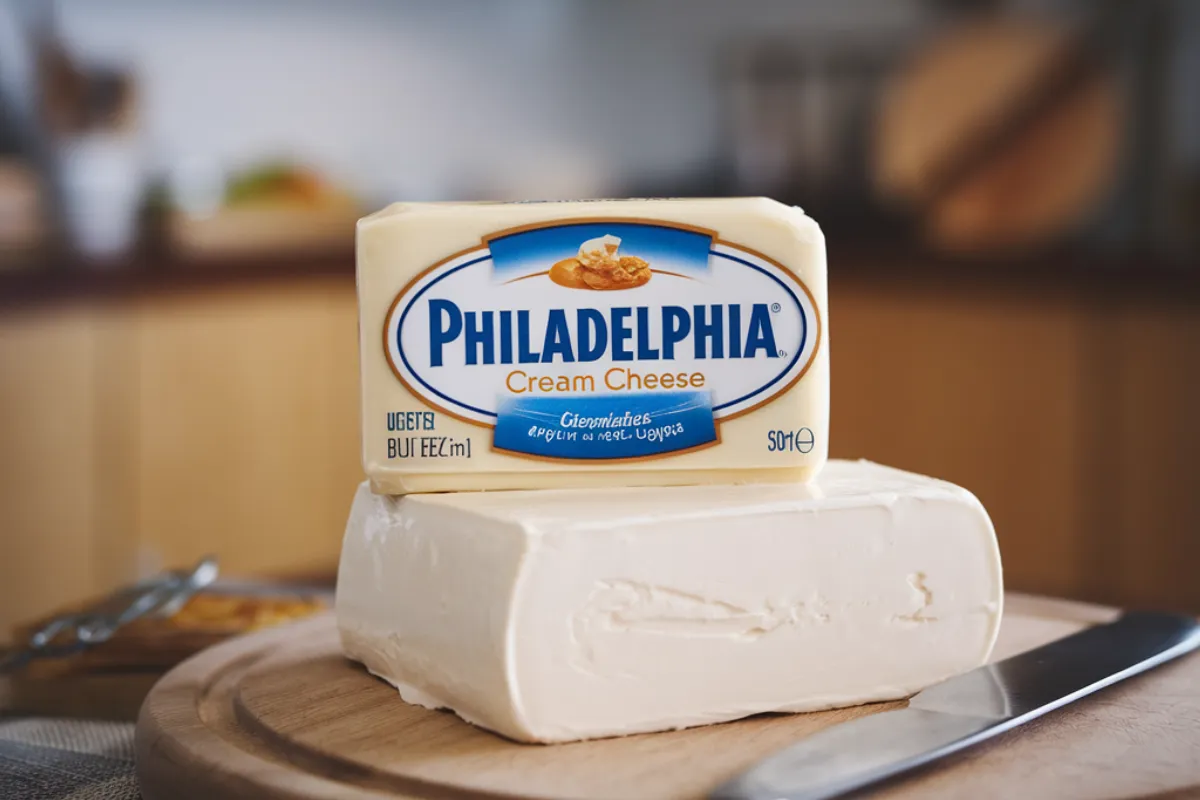As the popularity of the gluten-free diet continues to rise, the need for gluten-free options has become more critical than ever. Whether due to celiac disease, gluten sensitivity, or a personal choice to avoid gluten, many people are carefully scrutinizing the foods they consume to ensure they are safe. In this context, dairy products like cream cheese often come under question.
Philadelphia cream cheese is one of the most popular brands worldwide, often used in a variety of dishes ranging from cheesecakes to bagel spreads. But the question remains: Is Philadelphia cream cheese gluten-free? Understanding this is essential for anyone looking to maintain a gluten-free diet while enjoying this creamy delight.
To dive deeper into whether this beloved spread is safe for gluten-sensitive individuals, we’ll explore its ingredients, analyze its gluten-free status, and compare it with other similar products. For more detailed information about cream cheese and gluten-free options, you can check out The Gluten Free Bar’s analysis of Philadelphia cream cheese.
What Is Philadelphia Cream Cheese?
Philadelphia cream cheese has been a staple in kitchens since the late 19th century. Originally produced in New York, it quickly became a household name thanks to its smooth texture and rich flavor. Today, Philadelphia cream cheese is available in a variety of forms, including blocks, spreads, and whipped versions, making it a versatile ingredient in both savory and sweet recipes.
However, for those who follow a gluten-free diet, the primary concern is whether this product is safe to consume. Given the increasing awareness around food allergies and sensitivities, many are turning to resources like Wheat by the Wayside to verify the safety of their favorite foods, including Philadelphia cream cheese.
Is Cream Cheese Naturally Gluten-Free?
Cream cheese is typically made from a simple combination of milk, cream, and cultures, which are all naturally gluten-free. The basic process of making cream cheese involves curdling milk and cream with the help of bacteria, resulting in a thick, spreadable product. Since none of these ingredients contain gluten, regular cream cheese is inherently gluten-free.
However, the issue of cross-contamination can arise during the production process, particularly if the cream cheese is manufactured in facilities that also process gluten-containing products. This makes it crucial for consumers to carefully examine labels and look for any indications that the product was made in a gluten-free facility.
Philadelphia Cream Cheese Ingredients and Gluten-Free Status
Philadelphia cream cheese, in its original form, contains the following ingredients:
- Pasteurized milk and cream
- Salt
- Carob bean gum
- Cheese culture
All these ingredients are naturally gluten-free. However, the product is not always labeled as gluten-free, which can cause concern for those with severe gluten sensitivities or celiac disease. The lack of a gluten-free label typically means that while the ingredients themselves do not contain gluten, there may be a risk of cross-contamination during manufacturing.
If you’re highly sensitive to gluten, it’s important to read labels thoroughly or consult resources like Celiac.com that can provide additional insights into whether a specific product is safe for your diet.
Philadelphia Cream Cheese Varieties: Are They All Gluten-Free?
Philadelphia cream cheese is available in several varieties, including original, whipped, and flavored versions. While the original version is made from simple ingredients, the flavored varieties may contain additional ingredients that could potentially introduce gluten.
Original Philadelphia Cream Cheese
- Ingredients: Milk, cream, salt, carob bean gum, cheese culture
- Gluten-Free Status: Naturally gluten-free
Whipped Philadelphia Cream Cheese
- Ingredients: Same as the original but aerated for a lighter texture
- Gluten-Free Status: Naturally gluten-free, but always check the label
Flavored Philadelphia Cream Cheese
- Ingredients: Vary by flavor, may include herbs, spices, or other additions
- Gluten-Free Status: While many flavored varieties are gluten-free, some may contain gluten-containing additives. Always check the label.
Philadelphia Cream Cheese and Celiac Disease: Is It Safe?
For those with celiac disease, consuming even small amounts of gluten can trigger severe health issues. Given the potential for cross-contamination in manufacturing, it’s understandable that individuals with celiac disease might be concerned about consuming products like Philadelphia cream cheese.
While the ingredients in Philadelphia cream cheese are inherently gluten-free, the product is not always certified gluten-free. This lack of certification means there could be a slight risk of cross-contamination during the production process. However, many consumers with celiac disease have safely consumed Philadelphia cream cheese without any issues. It’s recommended to consult with your healthcare provider or a dietitian if you have concerns about including this product in your diet.
Comparing Philadelphia Cream Cheese with Other Brands
When it comes to gluten-free cream cheese, Philadelphia is not the only brand on the market. Here’s how it compares to other popular brands:
Kite Hill Cream Cheese
- Gluten-Free Status: Certified gluten-free, dairy-free, vegan
- Comparison: Ideal for those looking for a plant-based alternative
Daiya Cream Cheese
- Gluten-Free Status: Certified gluten-free, dairy-free, vegan
- Comparison: Similar in texture to Philadelphia but with a slightly different flavor profile
Tofutti Better Than Cream Cheese
- Gluten-Free Status: Certified gluten-free, dairy-free, vegan
- Comparison: A popular choice for those with both gluten and dairy sensitivities
Gluten-Free Alternatives to Philadelphia Cream Cheese
If you’re looking for alternatives to Philadelphia cream cheese, several brands offer gluten-free options that cater to different dietary needs:
- Kite Hill: Made from almonds, this cream cheese is both gluten-free and dairy-free, making it a great alternative for vegans and those with lactose intolerance.
- Miyoko’s Creamery: This cashew-based cream cheese is certified gluten-free and is a good option for those who want a richer, more decadent flavor.
- Daiya: Another plant-based option, Daiya’s cream cheese is gluten-free and available in various flavors, including plain, chive, and strawberry.
How to Use Philadelphia Cream Cheese in Gluten-Free Recipes
Philadelphia cream cheese is a versatile ingredient that can be used in a variety of gluten-free recipes. Here are some ideas:
- Gluten-Free Cheesecake: Use Philadelphia cream cheese as the base for a rich, creamy gluten-free cheesecake. Pair with a gluten-free graham cracker crust for a delicious dessert.
- Gluten-Free Bagels with Cream Cheese: Spread Philadelphia cream cheese on gluten-free bagels for a classic breakfast or snack.
- Creamy Pasta Sauce: Combine Philadelphia cream cheese with gluten-free pasta and herbs to create a rich and creamy sauce.
FAQs (Frequently Asked Questions)
Is Philadelphia Cream Cheese Labeled Gluten-Free?
No, Philadelphia cream cheese is not always labeled gluten-free, but its ingredients are naturally gluten-free. The lack of a gluten-free label may indicate a potential for cross-contamination during manufacturing.
Can Gluten-Free Cream Cheese Contain Cross-Contamination?
Yes, even if the ingredients are gluten-free, cross-contamination can occur during production. It’s important to check if the product is certified gluten-free if you have a severe gluten sensitivity.
What Are Some Common Misconceptions About Cream Cheese and Gluten?
A common misconception is that all cream cheese is gluten-free. While most cream cheeses are naturally gluten-free, flavored varieties or those with added ingredients might contain gluten. Always check labels to be sure.
Are Flavored Cream Cheeses Gluten-Free?
Not all flavored cream cheeses are gluten-free. Some may contain gluten-containing additives or be produced in facilities that handle gluten. It’s essential to read the labels carefully.
Is Philadelphia Cream Cheese Safe for People with Severe Gluten Sensitivity?
While Philadelphia cream cheese is made with gluten-free ingredients, it is not always certified gluten-free, which could pose a risk for those with severe gluten sensitivity. Consulting with a healthcare provider is advisable.
Can I Freeze Philadelphia Cream Cheese?
Yes, you can freeze Philadelphia cream cheese, but be aware that its texture may change slightly after thawing. It might become more crumbly and less creamy, making it more suitable for cooking rather than spreading.
How Long Does Philadelphia Cream Cheese Last in the Refrigerator?
Unopened Philadelphia cream cheese can last for up to one month past the expiration date when stored in the refrigerator. Once opened, it should be consumed within 7 to 10 days for the best quality.
Does Philadelphia Cream Cheese Contain Preservatives?
Philadelphia cream cheese contains natural preservatives like salt, but it does not contain artificial preservatives. The ingredients are simple, focusing on milk, cream, and cultures.
Is There a Lactose-Free Version of Philadelphia Cream Cheese?
Philadelphia does not currently offer a lactose-free version of their cream cheese. However, there are other brands available that offer lactose-free cream cheese, which may also be gluten-free.
What Dishes Can I Make with Philadelphia Cream Cheese That Are Gluten-Free?
Philadelphia cream cheese can be used in a variety of gluten-free dishes, including gluten-free cheesecakes, dips, pasta sauces, and as a spread on gluten-free bread and bagels.
Is Philadelphia Cream Cheese Suitable for Vegetarians?
Yes, Philadelphia cream cheese is suitable for vegetarians as it does not contain any animal rennet or gelatin. It is made from milk and cream, making it a good option for those following a vegetarian diet.
Does Philadelphia Cream Cheese Have a Low-Fat Option?
Yes, Philadelphia offers a reduced-fat version of their cream cheese, which still maintains the same creamy texture and taste, making it a lighter option for those watching their fat intake.
Is Philadelphia Cream Cheese Pasteurized?
Yes, Philadelphia cream cheese is made from pasteurized milk and cream, making it safe for consumption by pregnant women and others who need to avoid unpasteurized dairy products.
Can I Use Philadelphia Cream Cheese in Hot Dishes?
Yes, Philadelphia cream cheese can be used in hot dishes such as sauces, soups, and casseroles. It melts well and adds a creamy texture to cooked dishes.
How Is Philadelphia Cream Cheese Different from Neufchâtel Cheese?
Philadelphia cream cheese is slightly richer and creamier than Neufchâtel cheese, which has a lower fat content. Neufchâtel is often considered a healthier alternative but has a similar taste and can be used interchangeably in recipes.
Conclusion: Should You Include Philadelphia Cream Cheese in a Gluten-Free Diet?
After a detailed analysis, it’s clear that Philadelphia cream cheese is generally safe for those following a gluten-free diet. Its basic ingredients are naturally gluten-free, and many people with gluten sensitivities consume it without issues. However, the lack of a gluten-free certification means there may be a small risk of cross-contamination for those with celiac disease or severe gluten sensitivity.
If you are concerned about potential gluten exposure, consider choosing certified gluten-free cream cheese brands like Kite Hill or Daiya. Additionally, always check product labels and consult reliable sources to make informed decisions about your diet.
Philadelphia cream cheese remains a popular choice, thanks to its versatility and flavor. Whether you’re spreading it on a gluten-free bagel, using it in a cheesecake, or simply enjoying it with fresh fruits, it can be a delicious and safe addition to your gluten-free lifestyle.

